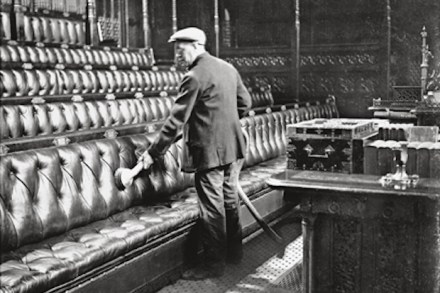The Spectator at war: Debating compulsory service
From ‘News of the Week‘, The Spectator, 31 July 1915: The debate on compulsory service in the Commons on Wednesday night was remarkable for the speeches in its support made by Liberal Members. Captain Guest, who raised the question, declared that if we were to win in the present war, and to win quickly, compulsory













